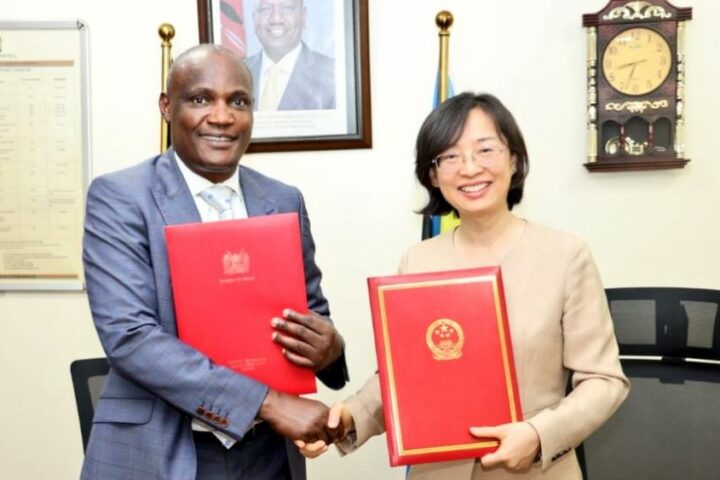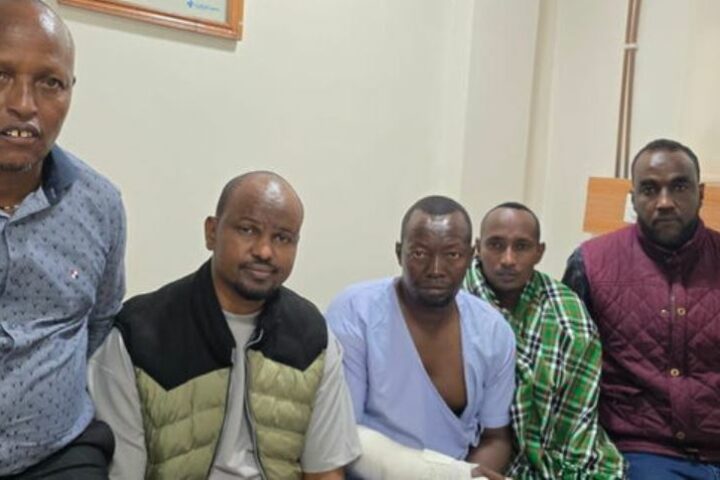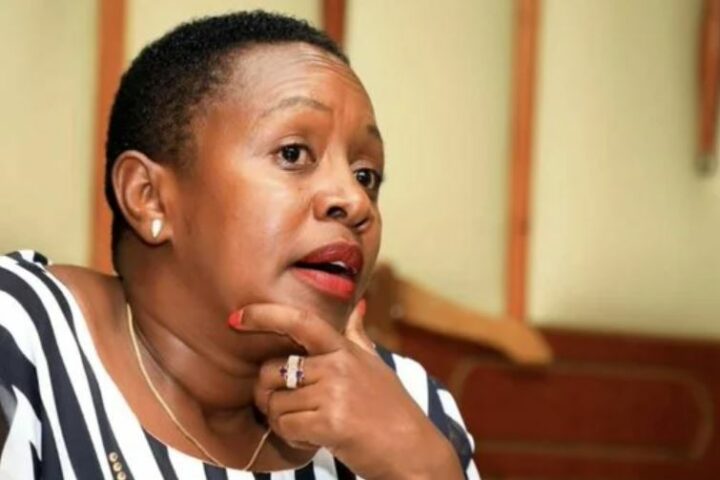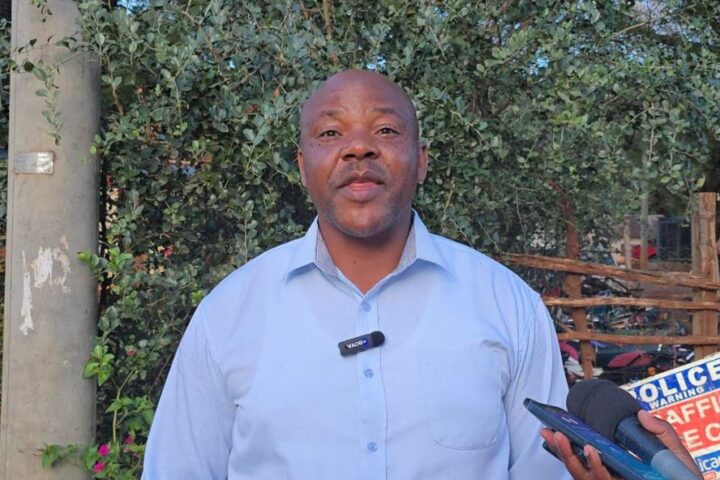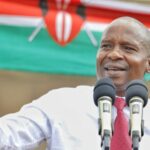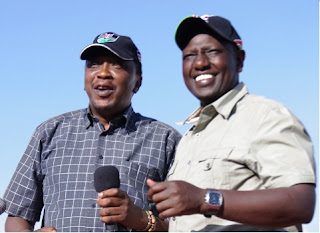 The Mumo Matemu’s case ruling settled the question of integrity or suitability to hold public office. For purposes of the integrity test in the constitution, the judges said, “There is no requirement that the behaviour, attribute or conduct in question has to rise to the threshold of criminality”.
The Mumo Matemu’s case ruling settled the question of integrity or suitability to hold public office. For purposes of the integrity test in the constitution, the judges said, “There is no requirement that the behaviour, attribute or conduct in question has to rise to the threshold of criminality”.This statement is profound and affirms centrality of the core national values and principles enshrined in Article 10 of the constitution.
The integrity threshold is not just about Uhuru Kenyatta and William Ruto. It touches on any person or individual aspiring to hold public office either elective or appointive.
The constitutional revolution that Kenyans ushered set very high standards, dawning a new era for Kenya. However, attempts are desperately being made by the old order that has historically benefited from unfair policies and laws to socio-politically exclude the rest of the country and revert to a criminal state.
This small clique that cut across political divide want to keep disenfranchising the masses. It is vehemently rejecting change. It was never part of the Constitutional reform movement.
It was deeply in bed with tyranny and despotic past regimes that dehumanized Kenyans. I want to be candid that Uhuru and Ruto and a whole bunch of old diehard Kanu members currently hypocritically projecting themselves as champions of New Kenya are a face of rejuvenating the old order.
They detest exposure of their horrendous past record. They can never guarantee and deliver human security and rule of law, sustainable human development and equal economic opportunities for all, and inclusive participation and human rights.
They are vigorously supported by a group of conservative lawyers and inner sanctum of power revolving around security and civil service apparatus that has enjoyed unfettered powers and privilege.
The entire approach to post-election accountability has exposed their old methods of deploying ethnic political mobilisation and manipulation devoid of deep policy and ideological positions.
They are determined to retain status quo of inequalities, socially exclusive economic policies and vagrant human rights violations. They hate rule of law, constitutionalism and effective institutional values and democratic practice.
Uhuru and Ruto have shown the common features of the African club of leaders who treat sovereignty of people with contempt and construe holding position of leadership as an entitlement rather than service to the people.
They have little regard for publicly promulgated laws and institutional values. Further, the capture of the state to them means owning unlimited machinery to accumulate wealth while millions of ordinary people wallow in poverty and misery.
The constitution is a threat to their unadulterated privileges and entitlements. Notably, respect for the rule of law is fundamental to the achievement of the democratic transformations envisaged by the constitution.
Truth be told, the International Criminal Court has offered them the best fair, transparent and open judicial process. They have been treated with the highest degree of fairness.
Nevertheless, because they do not believe in accountability, their trademark is ethnic manipulation and casting themselves as ‘victims of persecutions’ to win sympathy and protection.
The judicial process accorded them full due process of law. They had chances of hearing the cases made against them, rebutting the charges and then calling witnesses in a process that was telecast live locally and internationally.
This was an open court system where even the findings of their appeals on admissibility was heard and determined. In the end, the court found them with a case to answer.
The nature of charges confirmed against them are some of the gravest offences known to humanity. Kenya, having ratified the Rome statute in 2005 and domesticating it in 2008 under International Crimes Act, made ICC a court of last resort.
Therefore, whenever the government of Kenya is either unwilling or unable to proceed with trials of international crimes committed within its territory, then ICC becomes its last resort.
As far as 2007/08 post-election violence cases are concerned, the government has been very evasive and non-committal in prosecuting the lower and middle perpetrators of these crimes.
This is the critical moment to call this old order vigorously trying to reincarnate and sustain a criminal system a bluff. We have to objectively and soberly understand the real impact and implication of lawbreakers becoming law and policy makers.
This is not just at the presidency level but also across the board. Deliberately fuelled ethnic emotions and choreographed elite and their surrogate propaganda are irrelevant. We need to thoroughly and critically think of the future of Kenya.
Currently, Kenya is facing bigger socio-economic challenges that demand concentration. The country has a skyrocketing debt of Sh1.6 trillion and close to 56 per cent of the population is unable to meet their daily needs.
We have to adequately address the citizens’ concern of freedom from want, fear and human dignity. It is therefore overdue for Kenyans to avert their overriding sense of nationhood and appreciate the issues at stake here.
For a start, the magnitude of international isolation and the attendant of socio-economic ramifications should guide informed reasoning and decisions on eligibility of indictees of criminal or civil legal proceedings internationally or locally to hold public office.
There is imminent threat of loss of all the economic gains that has been witnessed in the recent past. Institutions like the United Nations Environmental Programme (Unep) and Habitat will have no option but to close down and relocate.
This is because there is a direct nexus that exists between economic prosperity and foreign diplomatic relation. A case in point is the relocation of Africa Development Bank headquarters from Abidjan to its temporary office in Tunis when sanctions against Ivory Coast were issued.
With an increasingly service-oriented economy and having been ranked amongst the worst unfriendly countries in doing business, can Kenya afford to have the UN headquarters and other agencies leave Nairobi when President Kibaki himself has spent millions campaigning for its upgrading?
It is clear that some countries and important international organisations will not do business with international criminal indictees.
The United States, European Union, Canada, Norway and Japan easily come to mind. These are countries that matter in the current flow of international commercial trade.
Japan and Germany, two countries that have experienced sanctions because of international atrocities, would fathom a Kenya with an indictee as a President.
China heavily relies on these trading countries for foreign direct investment in its country. In that respect alone, they cannot be mildly compared to South Sudan or Tanzania who are aid-reliant.
Further, China, as experience has shown with developed countries, is concerned more with wealth and resource extraction and not local investment.
The economic and humanitarian implications are troubling including huge funding for crucial social services. Can Kenya afford this?
Kenyans have to establish a clear balance between their notions of individual rights and the bigger picture of public interest.
It is disingenuous to pretend that in a civilized Kenya, there cannot be legitimate limitations to individual rights. This is a matter for everyone whose future depends on a stable democratic rule of law.
Unlike the political class and educated elite, ordinary people have no means to flee the country once the walls of sanctions cave in.
Some people have unwisely argued that disqualifying Uhuru and Ruto from elections would be tantamount to ‘selling Kenya’s sovereignty’.
They are certainly entitled to that viewpoint, but the reality is that Kenya is a member of a globalised international community thus denying the role of international partners in Kenya’s progress is unhelpful.
The traditional notions of Kenya’s sovereignty that emphasized geographical borders crumpled with the end of the cold war.
The increasingly integrated global economic and financial environment leaves no space for triviality where electing a personality for Presidency has inherent national and international consequences.
It is therefore pragmatic to accept that based on the current state-of-play, Kenya can ill-afford an Uhuru or Ruto Presidency.
Apart from clear national values enshrined in the Constitution, the consequential exposure of the country to financial and commercial exclusion makes that prospect truly grim.
Moreover, it is not true that Kenya is so deficient of leadership that we collectively resort to international criminal suspects.
The arrogance and indifference with which Ruto alluded to running the country remotely from The Hague is something Kenyans must deeply reflect on.
The far-reaching implications of electing a President with confirmed criminal or civil charges and who fail the integrity threshold that cannot be overlooked include:
First, what would be the consequence to the nascent rule of law and constitutionalism that the country is desperately trying to re-build?
Investments, both local and international, are dependent on political certainty and predictability. If the country or a county is led by a person with crimes or civil charges hanging over his/her head, what confidence does an investor have that law and judicial decisions on commercial or trade dispute will be respected?
What is the point of enacting the Constitution and enabling national laws that reflect will of the people and then oust them?
What sense of ‘servitude’ makes people applaud when the Deputy Chief Justice, members of judiciary and other constitutional offices are disqualified from public office based on unresolved integrity questions and conduct yet imagine it should not be applied to the presidency or other elective posts?
Have we reduced ourselves to the level of allowing ethnic bigotry overshadow the strength and guaranteed progress in our diversity?
Secondly, how would indictees of crimes against humanity expect to run and manage national security system with credibility and reputation?
As Commander-in-Chief and titular head of the security system, what message do you send about Kenya when the President is arraigned in an International Criminal Court?
With unresolved criminal issues and arrest warrants against the President or members of his cabinet, how do you expect the police officers to behave? Will they arrest the President or acquiesce to lawlessness that only promotes culture of impunity in Kenya?
Thirdly, judicial integrity and independence will suffer irreparable damage. There is open concern in Kenya about the historical Judiciary’s reluctance to ‘fry the big fish’.
Partly, this is what took us to the International Criminal Court. Yet, under Chief Justice Willy Mutunga, there are embers of hope and faith that this may be changing.
Nobody is naïve enough to believe the Chief Justice will succeed on this alone. Yet, if we were to have Uhuru or Ruto as President, the constitutional judicial authority and independence would be wiped out. If the President can afford to ignore judicial summons, why not Wanjiku?
Fourthly,Kenyan courts have already issued a warrant of arrest on Sudan President Omar el Bashir, an international fugitive wanted by International criminal Court for crimes of genocide, crimes against humanity and war crimes.
Khartoum responded so violently to Kenya. What would be the real effect of removing judges from office through a vetting process yet the President as the head of state has never respected or disregarded a judicial process?
Can judges in the courts talk about fidelity to the law when the President is a judicial fugitive? Would it not be naïve to think that the rest shall just be all right and all systems shall run efficiently as long as the President can remain on other issues, which are, non-crimes related?
Finally, the public service in Kenya runs on a certain principle of bureaucracy. The law and respect for high standards of professional ethics and integrity guide the state bureaucracy while performing public duty.
It is expected to service the public with utmost objective of non-political system, run efficiently and impartially in service delivery.
Nevertheless, it relies heavily on the ability of the President to lead the way forward in the rule of law. How shall such a President influence the official bureaucracy if he is not the best example of how to respect the law?
Granted, it rings hollow and naïve to politically and continently argue politically that Kenyans will decide whom to be the next President.
Only failed and pariah states can further such an illogical argument. Electing a President is not a zombie play game. The President is the face of the country.
Kenyans have to drop ecstasy of the moment and sober up. Governments have a way of working and relating with foreign countries and institutions.
A country with extremely vulnerable economy and suffering from high socio-political, economic and ethnic tensions invest heavily in its long-term national interests.
As a regional hub, Kenya must lead by example and attract the best talent to do business with. This is in a bid to meet the ever-expanding restless educated youth and maximize its strategic position as an entry point to the region.
This will not be possible under a President who is an international crimes indictee like Uhuru and Ruto. Courting such characters to even do politics with is catastrophic!
In a continent with the highest number of failed states, the reverse is unimaginable. Further, the President should bring dignity to the office and inspire confidence among the people, public institutions and international relations.
The justifications provided for in the Uhuru Kenyatta and William Ruto candidacy amount to national referendum on repealing the Constitution and its overthrow.
NDUNGU WAINAINA is Executive Director, International Center for Policy and Conflict
Appeared on the Star newspaper issue of November 10, 2012.

